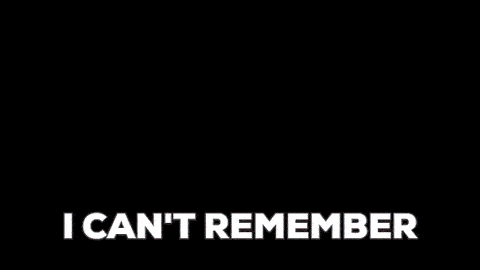BRONX, NY- Ever had a moment where you put something down, leave the room and cannot remember where was the last place you saw it? What about going to another part of your home and forgetting why you went there in the first place? How about you set down your first cup of Café Bustelo, attend a phone call and then can’t recollect where you set down your mug? (So, in Mami’s case you don’t stress it and make a second cup).
Believe it or not if this happens to you often, you are dealing with short-term memory loss. That mental issue Dory has in Finding Nemo is real and can stress you out.
According to an article from Livescience.com those who go through short- term memory loss “can recall incidents from 20 years ago but cannot remember what they did 20 minutes prior”. Sounds familiar? Causes include head injuries, alcohol or drug abuse, concussions, seizures, epilepsy, heart bypass surgery, depression, dementia, or witnessing a traumatic event such as an accident or violent crime. Web MD also says sleep deprivation, stress, nutritional deficiency, or a stroke can contribute to short-term memory loss.
So, what can we do about this problem? LiveScience.com suggests a method called mnemonics, which is “a technique of attaching a word, phrase or image to an object.” For example, when I attended elementary school, I remembered the nine planets (back then Pluto was a planet before NASA downgraded it to a moon) as My Very Eager Mother Just Served Us Nine Pizzas. “The Planet Song” from Blue’s Clues was also helpful for me with this. Image examples could be seeing the two golden arches and recognizing it as McDonald’s. Another way to help with short- term memory loss is placing several objects on a table, giving yourself 30 seconds to memorize the objects, removing the objects and writing down what you remember. Sudoku, crossword puzzles, and reading books is also recommended.
Try using the various methods mentioned to improve your memory. Your brain will thank you for it. Whenever you get frustrated, take a few deep breathes and “just keep swimming.”
Sources:
- Web MD: http://www.webmd.com/brain/memory-loss
- Live Science: Zimmermann, Kim Ann. “What is Short-Term Memory Loss?” LiveScience.com. 28 Jan. 2014. Web. 22 June. 2015. http://www.livescience.com/42891-short-term-memory-loss.html
Dory GIF: Giphy.com
Banner Image: YouTube.com
Last Updated: October 11, 2021

